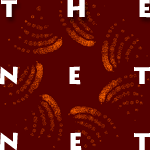September 10, 2000
A quick overview of what the semiautomatic assault rifle has in
common with the British North America Act:
While the British Empire was at war with Napoleon, the Americans
thought it was a good time to try a land grab up north. This didn't
work out so well, but did have the long term effect that, when Canada
formally came into existence under the BNA Act in 1867 (not 1863 as
Prime Minister Jean Poutine suggested a few months ago), it was a
bicultural nation: English and French. It was cut a very generous
deal with the French or, to a fair degree, risk being eaten piecemeal
by the Americans.
A curious long-term effect of this generosity is that Quebec, the
seat of French Canada, has produced more Prime Ministers than any
other province, yet still feels it has been treated so poorly that
it held a referendum on becoming its own nation in 1995 (and on a
few other earlier occasions). The 1995 vote was defeated by less than
1% with voter turnout exceeding 90%.
However, the next Canadian census, less than 150 years later, is
expected to show Chinese, not French, as the second commonest language
in Canada. When I was in grade school in British Columbia I received
ten minutes a day plus one seventy minute period a week of French
language, and like as not the ten minutes would be overriden by administrative
PA announcements, with the result that I'm a Canadian that can conjugate
two French verbs, say my name, and more or less ask where the French
bathrooms are.
Western disconcert is fed by the Quebec language police, beefed
up in the early 90s when the Quebec government passed a law forbidding
outdoor English signs (such as those on storefronts) to have the English
text be more than half the size of the French. That means if an English
word has one-inch high letters that it has to have a French equivalent
with two-inch high letters. And they go around with rulers measuring
the letters.
Conversely, a Canadian friend of mine, also a writer, recently lived in Wyoming.
While getting a haircut, his barber turned the conversation to guns.
My friend tensed, fearing his ears would be cut off by an irate Uzi-toting
hairdresser. The barber continued that he disliked guns, didn't own
one, and never would. My friend relaxed. BUT, the barber added, he
would NEVER take away my FRIEND'S right to own a gun!
The American right to bear arms is likewise grounded in historical
circumstance. It was believed that an armed populace could never be
subject to a corrupt government or invasion by hostile powers. Like
the BNA Act, it was deemed a fair safeguard to maintain coherence
within the nation and repel foreign incursions.
This only makes sense (in the original context) if the arms carried
by the American people roughly match the arms carried by the American
armed forces, and this is plainly impossible. The average American
can't afford a two billion dollar Stealth bomber or even a leftover
Russian ICBM. They're not even allowed to own nuclear weapons. What
they have is just enough guns to accidentally inflict a lot of heartbreak
on each other, and enough to allow any man with a big enough chip
on his shoulder to help keep alive the American tradition of gunning
down a President every twenty years. It's doubtful that that's what
the Founding Fathers intended.
It's equally unlikely that the authors of the British North America
Act intended Canadian biculturalism to be measured with a literal
meterstick.
Both circumstances smack of a fairytale king presiding over a divided
country being smitten with a peasant girl of the opposing faction,
marrying her, and swearing, "Now our country shall never be divided
again!" Whereupon their descendants, never having known the despair
and turmoil of a divided country, use this union as an excuse to make
outrageous demands -- as in-laws are wont to do.
They were conceived at a time when the security of the individual
was sincerely threatened. By security, I mean LIFE, that his LIFE
might be forfeit to invasion -- from the South in Canada's case, from
all directions in America's. They were not conceived, for instance,
for peg-legged Jacques Parizeau to dream of, as he advised a group
of students to likewise dream, "as long as we're in Canada, we'll get out our booty".



